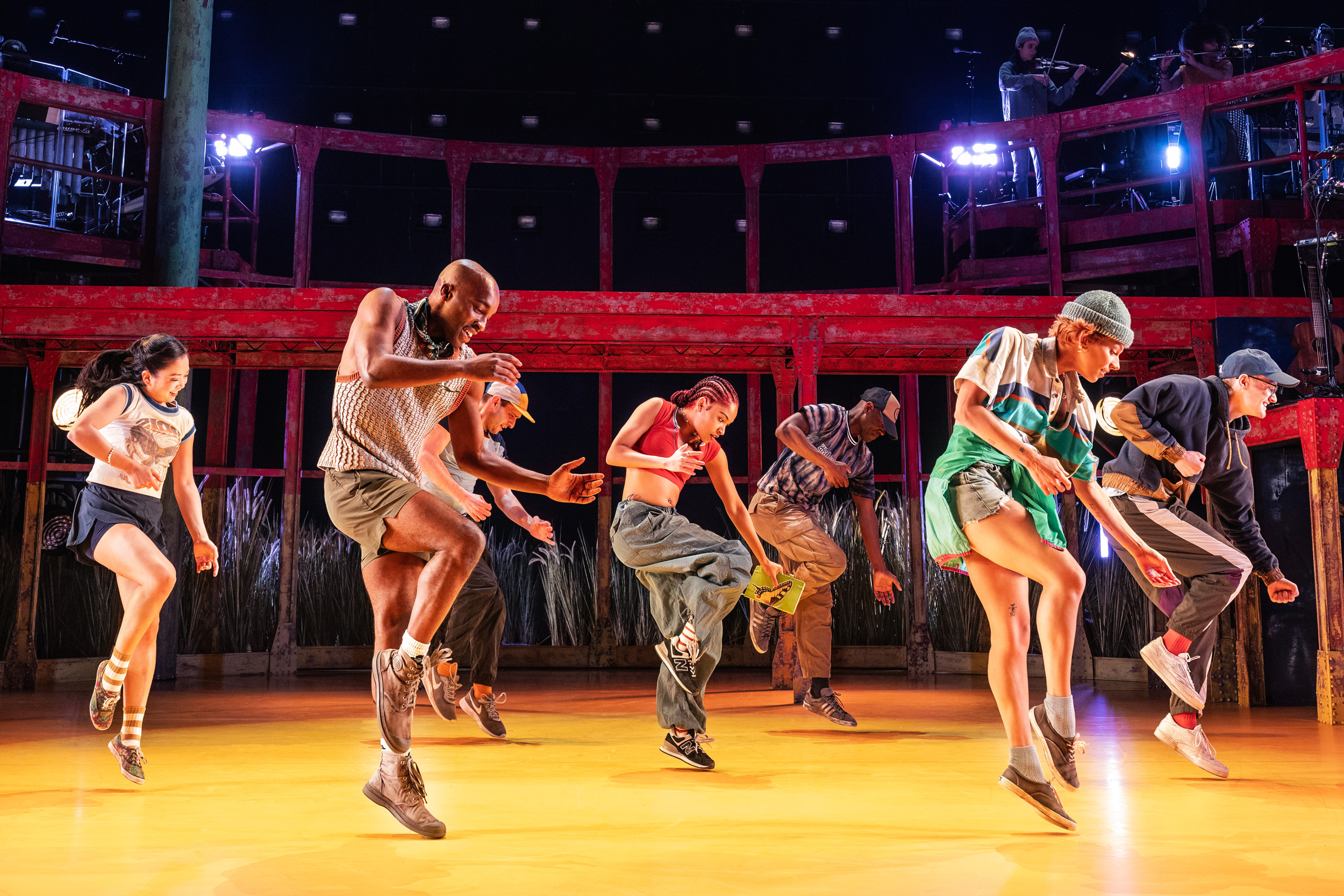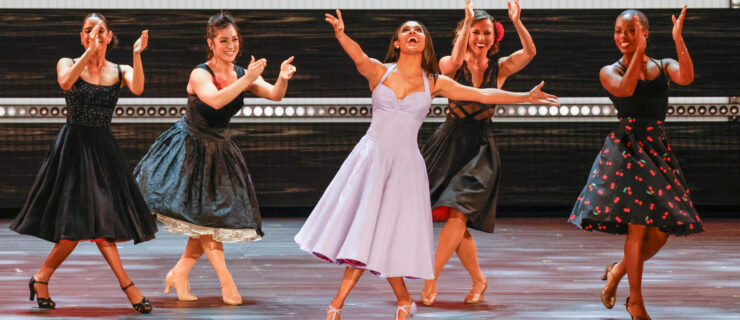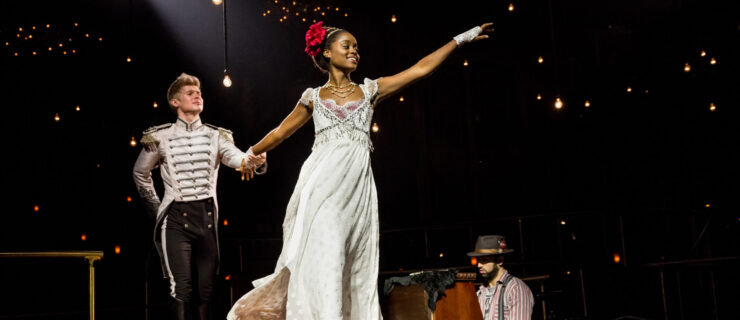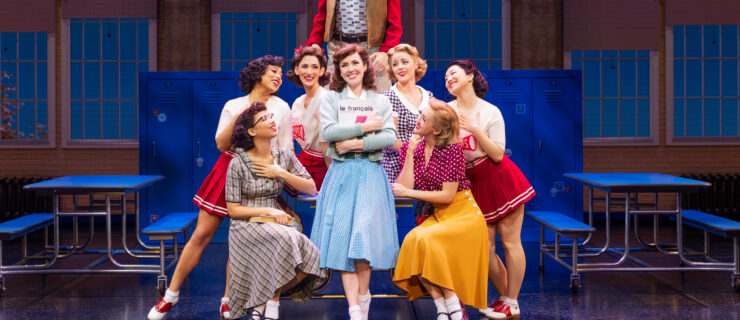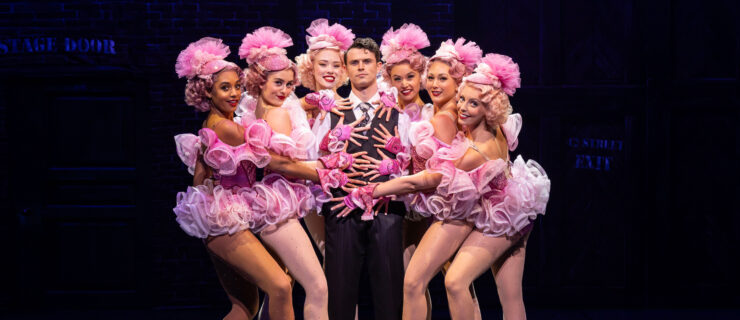Inside the Creation of Illinoise’s Onstage—and Offstage—Community
Ricky Ubeda, one of the stars of Broadway’s Illinoise, calls the show an “ecosystem,” made up of the assorted dancers, musicians, and crew who come together eight times a week at the St. James Theatre to bring Justin Peck’s vision to vibrant life.
Like any ecosystem, it’s made up of disparate interlocking parts. Dance training in styles from tap to Graham to Gaga can be discerned in the dancing, even though Peck gained stardom choreographing at New York City Ballet. Pam Tanowitz, Doja Cat, and American Ballet Theatre pop up among the Playbill resumés, along with the usual array of past Broadway musicals. And, like all ecosystems, Illinoise has evolved—but not by natural selection. When he first started mulling a theater piece derived from Sufjan Stevens’ beloved 2005 album, Illinois, Peck had two main goals, he says: “To create a musical that uses dance as its primary backbone” and “to build a show for a community of human beings, not build a show and then cast it in some cattle call.” Seeking a structure that would link the album’s songs, he settled on a group of individuals telling their stories around a campfire, with each tale reflecting its teller.
He had fixed on Ubeda, who had danced for him in Carousel and in the 2021 film of West Side Story, to play the central character before that character even had a name. Starting with the first workshop, in the summer of 2022, Ubeda has seen Illinoise grow from last summer’s “small, niche, emotional, interesting little show” at Bard College’s Fisher Center—Peck refers to it as its “first vomit”—to a Broadway hit with four Tony and seven Chita Rivera Award nominations, winning the Chita Rivera Award for Outstanding Ensemble. In between, Peck says, he “chiseled away at it,” focusing the story and fleshing out the characters with the dancers and the playwright Jackie Sibblies Drury, whom he asked to help with the dialogue-free book. “Ricky’s role got deeper and deeper as the process went on,” he says.
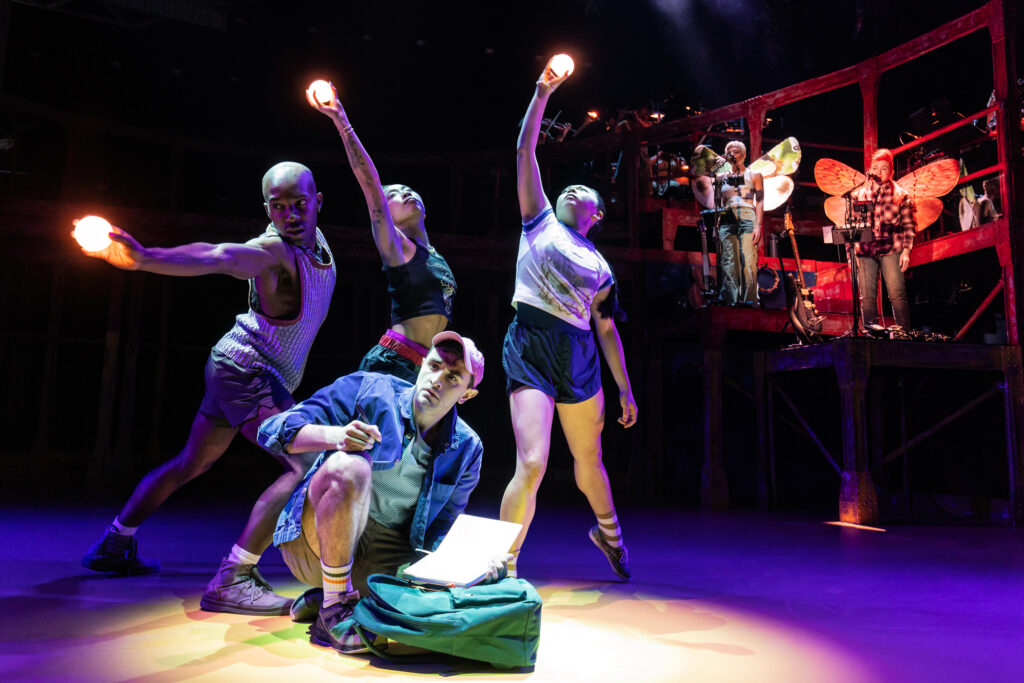
Ubeda’s performance snagged one of those Chita nominations; another went to Rachel Lockhart, making her Broadway debut as Morgan after joining the show before its January run at the Chicago Shakespeare Theater and its sold-out stop at New York City’s Park Avenue Armory in March.
Despite the differences in their backgrounds—he’s the first artist in his Miami family, she started training “fresh out of the womb” in her mother’s Birmingham dance studio—and their career tracks—his began in a Broadway ensemble, she’d always expected to join a company—they talk about Illinoise in similar terms. He sees his younger self in the role of Henry, “a young queer man who is coming of age,” and she finds echoes of her own questions about ancestry and identity in Morgan’s searching solo to “Jacksonville.”
Peck’s history is reflected in the show as well. “Most people know me from ballet,” he says. “But I really got my start from musicals.” Inspired by regular family trips to New York City to see shows (Bring in ’da Noise, Bring in ’da Funk was the standout), he was a tap dancer for years before “broadening out.” “Ballet came last,” he says, and when he began choreographing, he “was always a little bit restless about staying in one particular lane.”
With its wide-ranging styles and stories, both on and off the stage, Illinoise travels in multiple lanes that crisscross in surprising (and unsurprising) ways. Tyrone Reese, one of the understudies, was a year behind Lockhart at the Alabama School of Fine Arts and followed her to Juilliard; Lockhart didn’t know cast member Kara Chan, but soon discovered she was also a Juilliard alum. Ubeda and Gaby Diaz have known each other since they were 10, and Ubeda and Ahmad Simmons, who plays his lover in Illinoise, have done four Broadway shows together. Lockhart and Byron Tittle, whose tapping augments her “Jacksonville” number, have both danced with Doja Cat. And Ubeda, Diaz, and Lockhart were also memorable contestants on “So You Think You Can Dance”; Ubeda won Season 11.
Among Ubeda’s “SYTYCD” prizes was a contract for On the Town. He’d never seen a show, much less envisioned a Broadway career. “I had to learn it in three days,” he recalls. He credits that experience for the “sense of community” Lockhart says she felt when she first walked into an Illinoise rehearsal. “What we do onstage has to do with a group of friends who are warm with each other,” Ubeda says. “And we’ve all been in those shoes, where we are the youngest and newest person. At On the Town, they made me feel so at home. We all make it a point to make sure newcomers have what they need to succeed, and with these, it wasn’t hard—they bring something new to our campfire.” And to the ecosystem.
